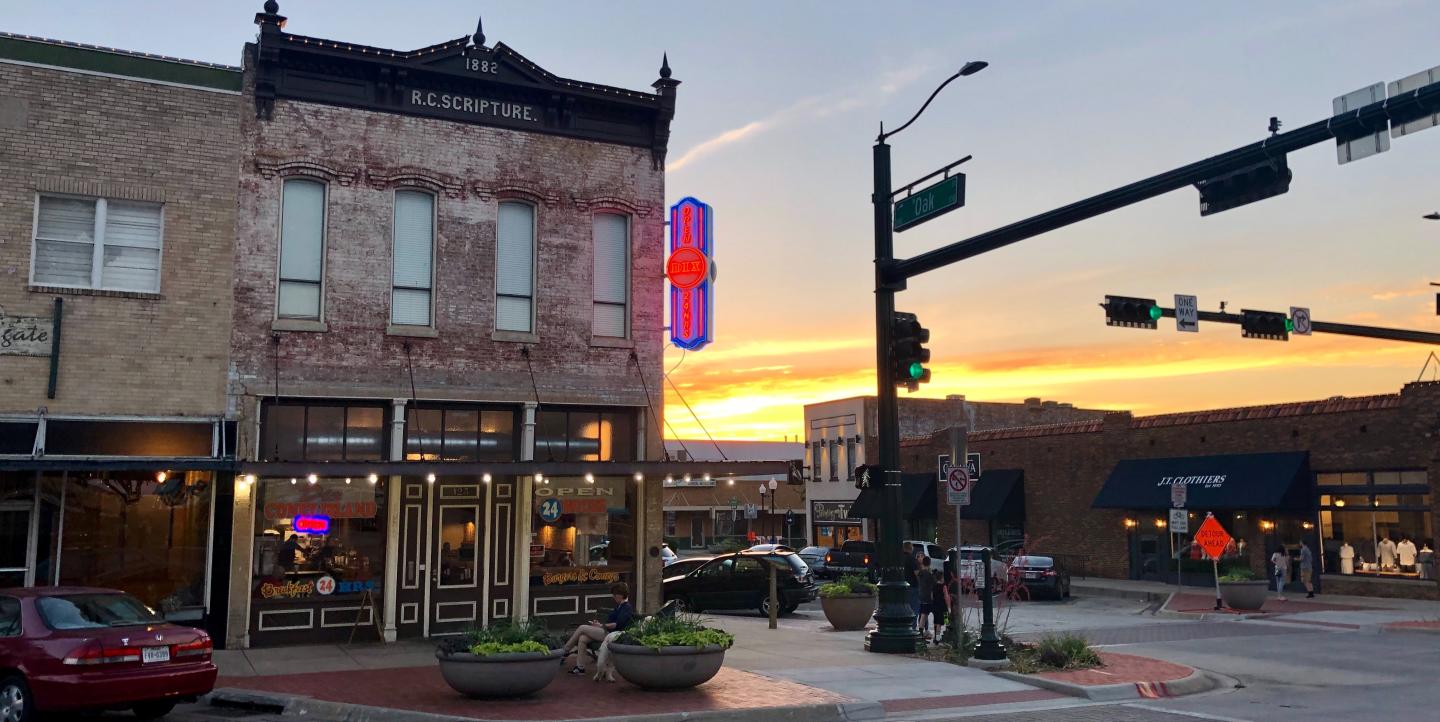Big cities seem to be the centers of everything, including the media industry. One in five newsroom employees in the U.S. work in New York, Los Angeles or Washington, D.C. In the U.K., 39% of all freelancers and 49% of all employee journalists live in London. For journalism graduates worldwide, heading to a big city to find work is almost a rite of passage.
Metropolitan areas can be expensive, however, and media jobs are notoriously low-paying, especially for newcomers. Since remote work has become increasingly popular, many might consider relocating to a small, affordable town or suburb. But how feasible would it be?
Cecilia Anesi, a reporter with the International Reporting Project Italy (IrpiMedia), said you don’t need to live in a big city to pursue a career in journalism. Based in a small town in central Italy, Anesi works on cross-border investigations into organized crime, drug trafficking, and corruption. "Big cities offer more opportunities to freelancers, but only if we look at desk work," she pointed out. "If I am reporting about migrant people, I will need to travel to Lampedusa, [an Italian island off the northern coast of Africa]. To report about the 'Ndrangheta [mafia group] and understand the phenomenon, I'll have to spend time in the Calabria region.”
Although the lack of public transport connections where she lives makes travel more difficult, the location helps her concentrate and relax.
Freelance journalist Arlene Harris also sees several advantages to being based in rural Ireland: "The cost of living is lower, [and] the quality of life is higher if you enjoy walking in the countryside before starting work," she said.
Harris regularly contributes to the Irish Times, Irish Independent, and Sunday Times. She said freelancing outside of a big city has never been easier.
“Having worked for a decade or more in central London, I have been working in rural Ireland for about the same length of time and, if anything, I have more, rather than less work,” Harris said. “As long as you have a good broadband facility, there is no reason why you can’t continue to work in exactly the same way as you did while working in an urban setting.”
Less-than-14,000-inhabitants-strong Oneonta, New York resident Emily F. Popek, a communications professional and freelance journalist with bylines in the New York Times and Washington Post, also pointed to new possibilities. “If your goal is to be on staff at a publication, and to work in-person, there are obviously limited opportunities to do that outside of big cities,” she said. “However, I think the pandemic opened up a lot more opportunities to work remotely even for companies that previously required all their staff to be in-person.” It is now possible, for instance, to take on jobs that would previously require relocation.
Popek has lived in rural areas most of her life, and she enjoys the community, the quiet, and the natural beauty. And she added: “I love the relatively low cost of living, so that when I do score a more well-paying byline, those dollars go a lot farther.”
So, you want to make it as a journalist outside of a big city? Here are a few tips to help.
Travel strategically
You may need more time to arrange your travel if you live in a remote location with poor public transport connections. Make strategic decisions. "Plan your [reporting] travels ahead of time, and give yourself more time for each trip," Anesi suggested. "Hopping from one place to another like a crazy ping pong ball won't help you concentrate or reach your goal. Instead, allow yourself the time to learn about places and talk to people and sources there."
Connect online
Having no colleagues nearby to brainstorm or even simply grab a coffee and catch up with can be challenging. Harris suggested that you engage with other journalists online, even if it's just a little banter via social media. "Because it can be pretty isolating at times, and if you are used to a busier or more fast-paced life, then the adjustment can be hard."
Check out some online communities like the Society of Freelance Journalists, and join their virtual meetups and discussion boards.
Build a client base
Working from anywhere is easier if you bring the job with you. This is especially true if all communication occurs over the phone or via message. "If you are planning on working outside a big city, I would encourage you to put in the time and effort required to build up your client base, perhaps before making the move," Harris recommended. "If you are relying solely on making contacts via email, it might be difficult to build up a rapport."
Join or form a union
Popek noted that working conditions and pay in journalism are not always great, especially early on. There may be even less bargaining power if you live in an area with fewer jobs. “You may also lack the solidarity of other workers if you are working as a freelancer, stringer or even as an employee in a small newsroom,” she explained.
Her top tip is to join a union or form one. A union is one of the most potent tools journalists have to improve working conditions and make the job more livable, she explained: “[We] can fight for fairer wages, better benefits and some of the other things that make it possible for us to continue to do this work without burning ourselves out.”
Make the location work for you
“To succeed as a freelancer outside of a big city, I think the key is to make your location work for you, not against you,” Popek continued. For example, when accepting assignments, a lower cost of living may allow you more flexibility to pursue not just the most high-paying jobs.
"For another, think about the stories you can cover – the people and places you have access to, and the points of view you're familiar with, that your editors in major cities might not be aware of. This can be a real strength for you as a freelancer if you can make it part of your beat," she concluded.
Photo by Monica Bourgeau on Unsplash.


